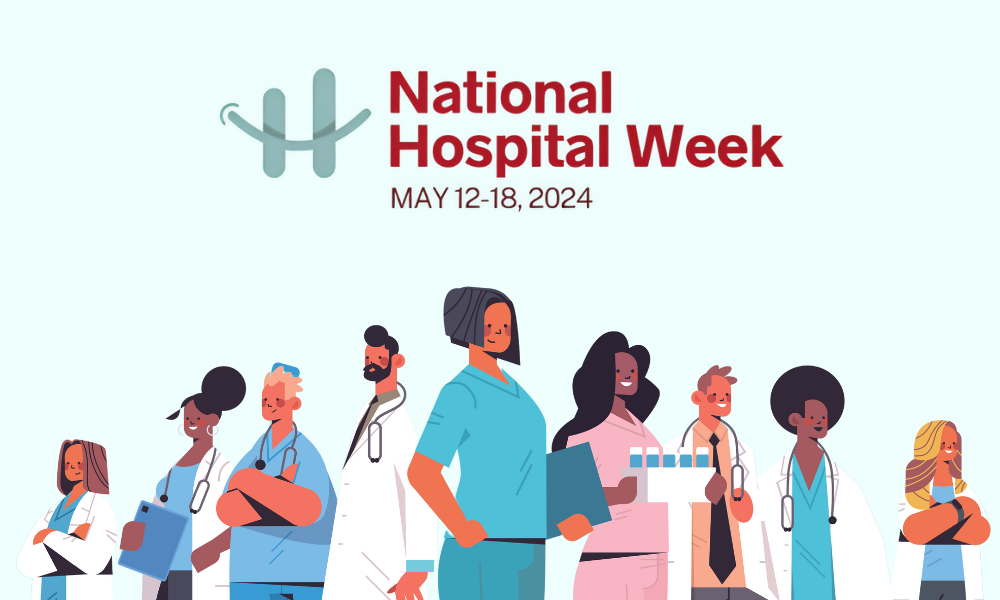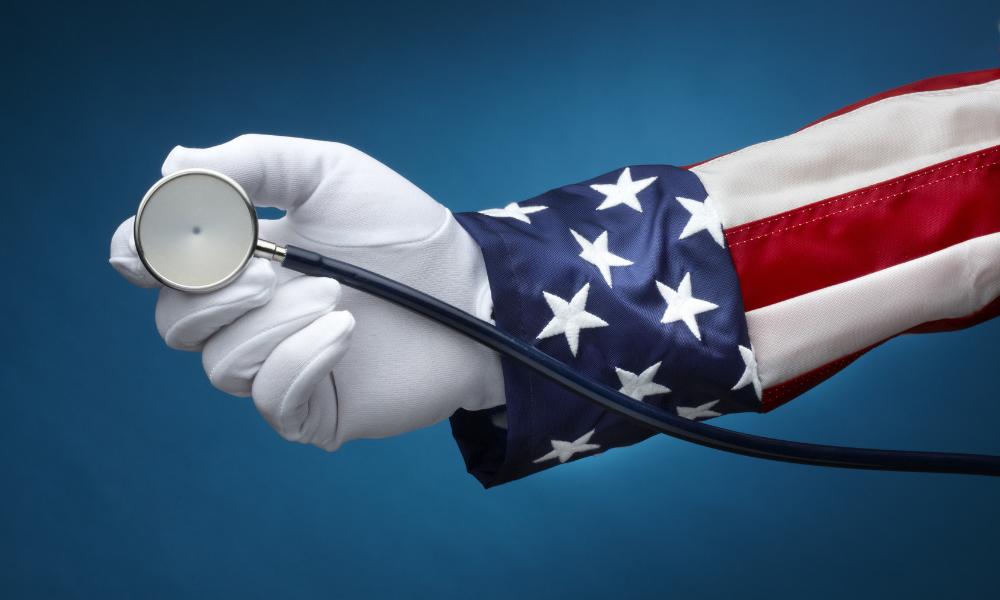You’re probably familiar with the flight attendant safety instruction to “secure your own oxygen mask before helping children or others needing assistance with theirs,” should the air pressure drop suddenly during your flight. The idea is that you can’t help anybody else if you can’t breathe. And it’s sage advice for locum tenens physicians and other healthcare professionals — especially those assigned to emergency rooms and overflow hospitals during this coronavirus pandemic.
For thousands of medical professionals serving on the front lines in fighting COVID-19, the importance of self-care has never been more critical. Nevertheless, like many Americans who struggle to make the time and effort to take care of themselves, doctors and nurses tend to ignore the basics of keeping themselves well. In the case of healthcare workers treating those likely infected by COVID-19, not doing so could be career- or life-ending.
The coronavirus that causes COVID-19 is highly contagious. Perhaps you remember the AMA interview we cited a few posts back with an emergency doctor who had just completed his fifth night shift in a row in an overcrowded, New York City ER. Dr. Omar Maniya, who had recovered from COVID-19 himself, said that although he undressed before entering his home and headed straight for the shower upon entering, his wife still fell victim to the virus. Healthcare workers admit the possibility of infecting themselves or loved ones at home is a constant concern.
In fact, between Feb.12 and April 9, 2020, some 9,300 front-line healthcare workers contracted COVID-19 out of a workforce of roughly 18 million, according to a National Public Radio report published April 15. CDC researchers noted that only 27 healthcare workers had died of complications from the novel coronavirus. However, they acknowledged both counts likely were low since 84% of those tested hadn’t identified whether they worked in healthcare.
Continuing Care
Filling the gaps in clinician coverage caused by illness, job transitions or expanding services is where the healthcare staffing industry — and locum tenens physicians in particular — come in. (Staffing Industry Analysts recently identified locum tenens as one of the few staffing industry segments projected to grow during 2020, by a rate of five percent.) Healthcare staffing firms can deploy these temporary physicians, nurses, advanced practitioners and allied health professionals to areas facing sudden surges in demand in a matter of days — sometimes hours. Last month, one healthcare staffing CEO told SIA he considers his firm to be among first responders who help their communities during healthcare crises like the COVID-19 pandemic.
Recently Jackson Healthcare President Shane Jackson told SIA that demand for critical care professionals had surged in areas hardest hit by COVID-19. He described the healthcare staffing industry’s mission as moving medical professionals from areas where they’re underutilized to high-demand areas like New York. Jackson noted that some smaller cities like Albany, Georgia, also had started bringing in reinforcements.
Jackson said the prospects of being away from their families and possibly contracting COVID-19 while on assignments adds stress for clinicians beyond what they generally experience in accepting temporary assignments. Considering the potential emotional toll, he acknowledged it’s part of a staffing firm’s job to serve as confidant and counselor for the clinicians it places in the field.
Go Deeper: One ER Doctor on the COVID-19 Front Line
Managing Mojo
Most locum tenens physicians, advanced practitioners, and other healthcare workers know how to mitigate the effects of stress. The problem is recognizing its importance during a healthcare crisis like the one we’re currently experiencing — and then following through.
Since COVID-19 began spreading across the country over the past month or so, a number of organizations have published articles on how physicians and other medical professionals can survive the pandemic with their mental, spiritual and emotional well-being intact. Based on our review of several of these, we offer five key goals for healthcare workers to keep in mind.
1. Focus on what you can control
Perhaps you’ve heard of the serenity prayer, written by Reinhold Niebuhr. It begins like this: “God, grant me the serenity to accept the things I cannot change, the courage to change the things I can, and the wisdom to know the difference.”
You can’t control who catches COVID-19, nor can you determine who’ll survive it and who won’t. But you can acknowledge your humanity, which means understanding you’ll make mistakes “during the heat of battle,” learning from your mistakes and then letting them go so you’re ready to face the next challenge. Experiencing “the precious present” fully requires letting go of what has passed. Don’t let it ruin another moment.
2. Establish a routine
Make sleep a priority and try to go to bed and get up at the same time every day. Eat a healthy diet, rather than fast-food takeout, and stay well-hydrated. Fit in some sort of exercise daily, even if it’s simply walking the dog. (You’ll sleep better when you do.) Schedule bits of time during the day or week for mindfulness activities like journaling or focused breathing exercises.
3. Limit your news consumption
During the first quarter of 2020, our 24/7 news cycle has bombarded us with COVID-19 coverage almost nonstop. The large, colorful slide of the coronavirus molecule on the screen behind almost every TV news anchor, the “COVID-19: Latest News and Updates” at the top of social media feeds, a new Google animation every day recognizing a segment of the “essential worker” corps.
The omnipresent reminders of “coronavirus,” “COVID-19,” and the “pandemic” in which we find ourselves are impossible to escape, UNLESS YOU TURN THEM OFF. Turn off the television. Raise your eyes from your phone and meet the gaze of a passer-by — even when he’s six or more feet away. Get outside, listen to music or call a friend to chat. You can catch up on the news fairly quickly once you’ve taken a break from it.
4. Stay connected
With family — especially when you’re at home with them: be fully present. With friends via call, text or conferencing apps. With your faith — perhaps through a daily devotional, prayer or online worship services. And manage your mental health through activities like meditating, making daily gratitude lists or practicing yoga.
5. Reward yourself
Be compassionate with yourself. Recognize what a stressful time this is around the world and give yourself grace. Know that “being perfect” isn’t possible and be okay with that. Set reasonable expectations for yourself and others. Plan little things to look forward to. Do little things for others and revel in how happy it makes you feel. A growing number of media reports highlight the very real fears among physicians, nurses and other medical professionals regarding their own vulnerability to infection. The New York Times Magazine asked one local emergency physician to keep a diary for six weeks about working in a New York City ER soon to be overwhelmed by COVID-19. Dr. Helen Ouyang, an emergency physician; a writer and an assistant professor at Columbia University, described situations like these:
- Hearing the governor is protecting medical professionals from lawsuits during the pandemic unless it’s a case of “gross negligence”: “I think we’re much more anxious about having to live with people dying—and possibly getting sick ourselves.” She noted the citywide increase from 50 to roughly 300 “DOA” cases in one day, as reported by paramedics.
- Recognizing the seeming exercise in futility of trying to preserve her PPE: “Sometimes I see the individual virus particles—round with red, protruding crown-shaped spikes, like the CDC’s rendering—everywhere in the hospital, on beds and monitors and phones and computers. I shudder, forcing myself to erase the image from my mind.”
- Feeling she had to show up for her shift unprepared: “The next morning, as I’m getting ready for work, I panic: I might not have showered last night when I got home from the hospital. I try to retrace my actions but fail. I simply cannot recall. Did I just fall asleep? Am I infected? Should I change my sheets, scrub my apartment? But I have to get to the hospital for my shift. There’s nothing I can do about this now. Better to be lucky.”
As the title subheading on the article noted, “None of [them] will ever be the same.”








